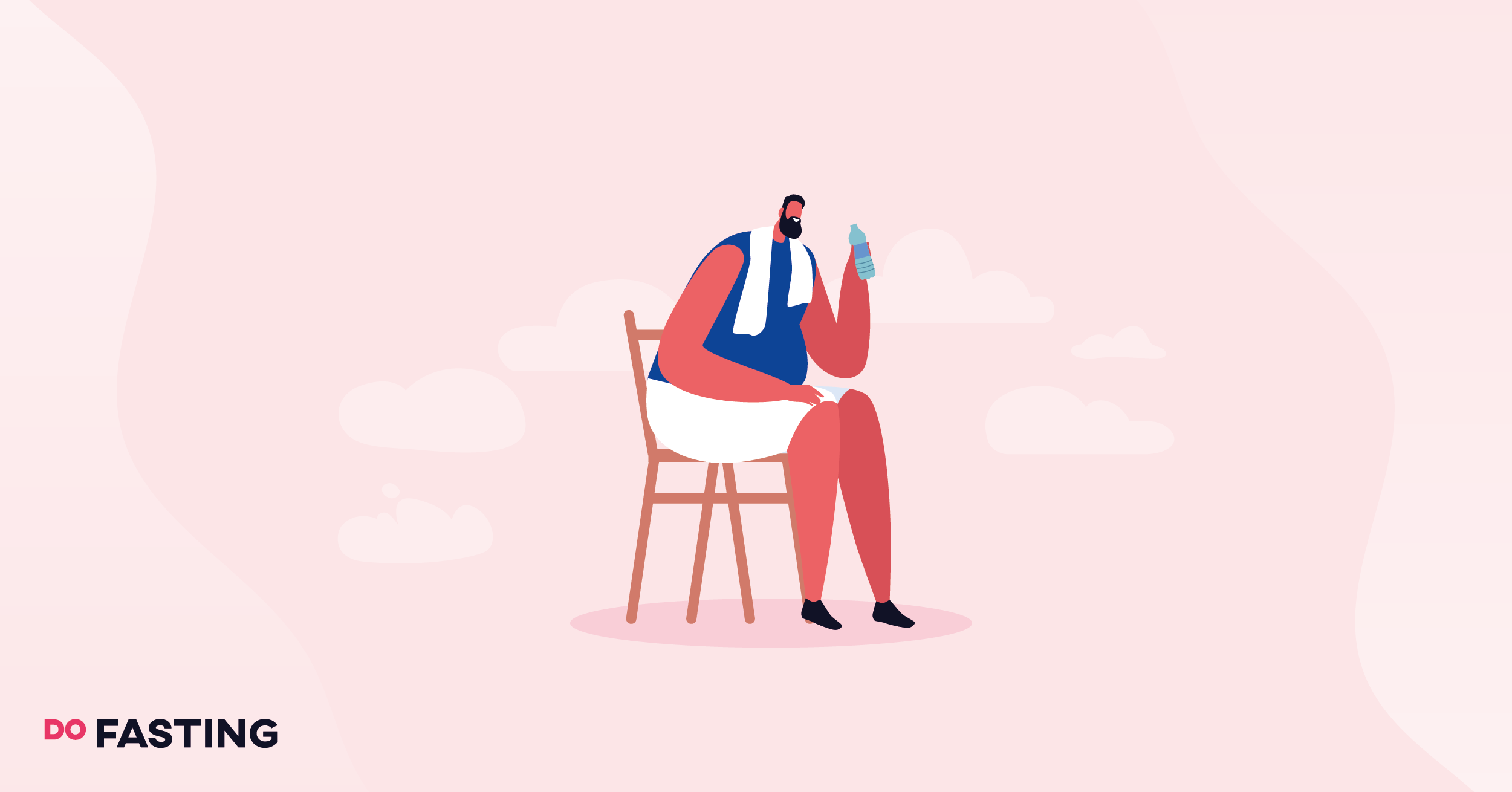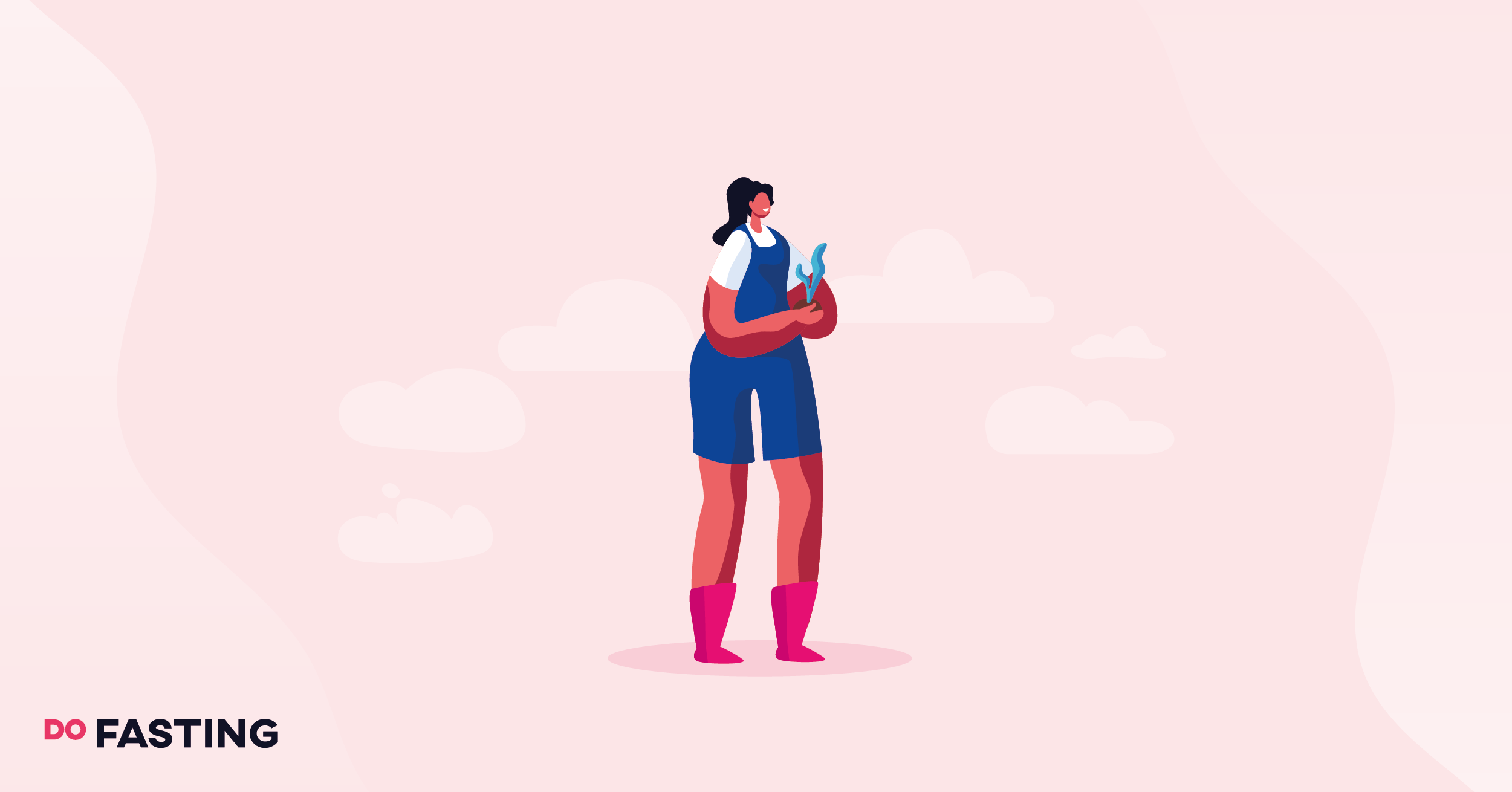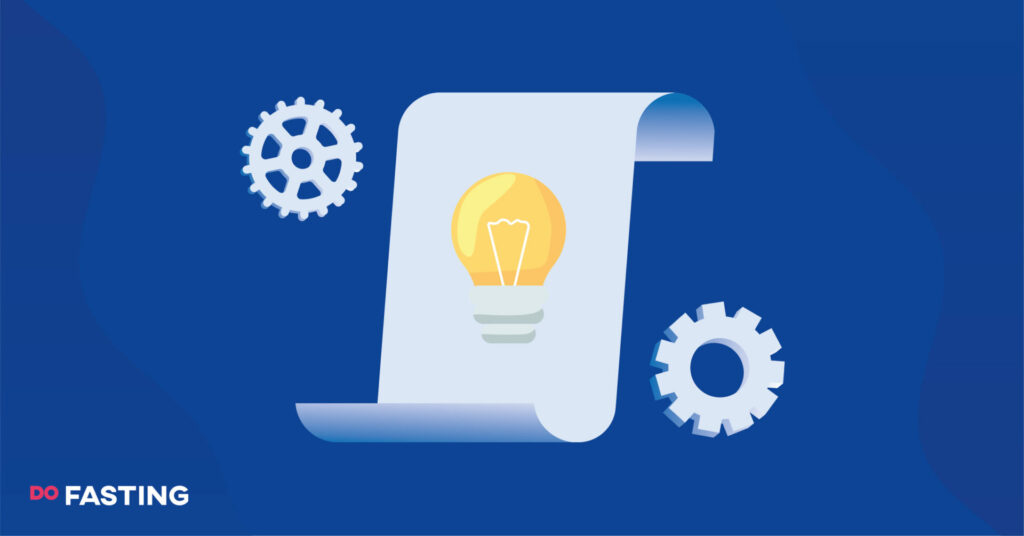Contents
What Are Electrolytes?
This term refers to a substance that dissociates into positively charged and negatively charged ions when dissolved in water. These ion charges are crucial, as they control the flow of water in our cells and activate nerve impulses throughout the body (heart beating, lungs breathing, brain learning).
To put it simply, we need electrolytes to survive. Many different electrolytes are responsible for many different bodily functions, but here we’ll concentrate on the main three: sodium, potassium, and magnesium.
These three minerals are all depleted much quicker than usual during the early days of a fast. As a fast continues and the body figures out what’s going on, it will eventually adapt and learn to reserve these minerals.
Take a
1-minute quiz
and discover how much weight you can lose with DoFasting!

Sodium
The most well-known electrolyte is sodium, aka plain old table salt. The great salt debate continues to rage since many people think that salt is a big, fat no-go if you’re on a diet. But in reality, we all need salt.
Sodium is responsible for fluid volume and is required so potassium can do its job. When we’re fasting, we want our bodies to go through a recycling process. We want a higher blood volume, so more blood is available to deliver waste to the liver and be processed and, ultimately, excreted.
Potassium
Potassium is responsible for keeping the nervous system going and balancing various fluids. As mentioned above, having the right potassium-sodium ratio is essential for electrolyte balance. By helping to keep blood pressure down, potassium can lower your risk for stroke and heart disease.
You can find it in bananas or various other fruits (such as apricots, prunes, and orange juice) and several vegetables (such as squash and potatoes).
Magnesium
Magnesium’s most significant contribution to bodily health is in regulating calcium. Calcium is the bone-building mineral, but if magnesium isn’t present, calcium is not able to do its job.
Magnesium is also known as the “relaxation mineral” since it helps to relax muscles, relieve cramping, and minimize stress and anxiety. A lot of people also consume magnesium to ease constipation and migraines.
Unfortunately, you’ll find very little of the mineral in a standard, balanced diet. That’s why it’s recommended to pick up a supplement that contains plenty of magnesium.
Imbalanced or Depleted Electrolytes
Electrolytes need to stay in balance to work correctly and efficiently. If you have too much or too little sodium, you may experience adverse side effects, such as abdominal cramps, fatigue, and tiredness. The big thing to know for sodium is that our central nervous system can be affected by imbalance.
Also, as soon as you’re active, you’re going to burn through sodium like crazy. The moment you break a sweat, your sodium levels are going to deplete faster than your other minerals.
Most of the minerals that are considered electrolytes; we lose every day by sweating and urinating. For that reason, these must be replaced as soon as possible to maintain healthy body function. We need to hydrate ourselves and refill electrolytes with naturally rich-foods, rather than by sports beverages or supplements.
Electrolytes & Intermittent Fasting
Electrolytes are critical in contracting our muscles, energy production, neurons firing, and action potential. If we have electrolytes available, we can create energy and benefit way more from our fast. In the end, that’s what we want – better, faster, more efficient results.
Fasting is supposed to be difficult, stressful – it’s an adaptive system. When you’re fasting, your insulin levels are lower, which means that your kidneys naturally expel more water, which means you lose more minerals.
And for more prolonged fasts, it’s important to have supplements on hand to recharge your electrolytes. When you’re fasting, you’re trying to stress your body. Because you’re stressed from not eating, your heart rate increases, and all sorts of stuff happens. This shake-up is what allows you to burn fat. By drinking more electrolytes while fasting, you’ll have more energy because replacing all that sodium and insulin you’ve lost while not eating.
Take a
1-minute quiz
and discover how much weight you can lose with DoFasting!

During exercise, you lose sodium through sweat. Combine this with fasting-induced sodium loss, and you have a strong need for supplementation. Suffering from a super low sodium level is called hyponatremia, and it hugely affects the body – and not in a good way. That’s why you need to stay hydrated as much as possible, and better with slightly salted water to replenish sodium levels back to normal.
Symptoms That You Lack Electrolytes
What happens when a person lacks electrolytes? Whichever electrolyte is missing, still the symptoms are very similar to each other: fatigue, laziness, dizziness, lack of motivation.
Everybody’s active lifestyle, sweating intervals, level of endurance is different. Your everyday rituals and habits will impact your electrolyte balance. How much you lose depends on whether you’re an athlete doing lots of cardio and weightlifting or someone who casually bikes once in a while.
What you eat matters too, and if you’re filling up on processed foods with few nutrients and minerals, then, of course, the risk of becoming electrolyte deficient is increased.
Take a
1-minute quiz
and discover how much weight you can lose with DoFasting!

The Bottom Line
Some people may be ignorant and blab that consuming electrolytes results in you cheating on your fast and that sodium will break it, and so on.
Drinking water alone, with no minerals, is what will actually hurt your fast. Of course, don’t jump straight into the beverage aisle and gulp down every sugary sports drink you find – all you have to do is focus on eating more whole foods and drinking plenty of natural water.
So, to jump and boost your intermittent fast to its full potential, supplement your salts!
See how DoFasting will improve your life
Find out what works for you with this 60-sec quiz approved by our experts and get your personal revolutionary fasting assistant.
Start the Quiz















